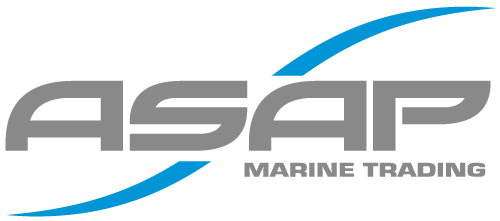Why we Promote and Sell Aluminum Anodes instead of Zinc?
In Short:
Aluminum Anodes does Everything Zinc can and More, Better and Safer.
- Perform at least 5% better than Traditional Zinc anodes in saltwater.
- Protect 50% longer than Traditional Zinc anodes.
- Are environmentally friendly ― contain 0% Cadmium, a toxic material found in Traditional Zinc anodes.
- Weigh 50% less than Traditional Zinc anodes.
- Meet the US Military Specification Mil-DTL-24779C(SH).
- Are the only anodes proven to be effective in Salt & Brackish water.
- Results in considerable cost savings compared with Traditional Zinc anodes on commercial products.
Oh, it's also a lot lighter, therefore cheaper to ship anywhere!
Reasons to stop using Zinc anodes:
- EPA recommended Cathodic protection for sacrificial anode systems ― choose the least toxic material that is practical. In order of preference: magnesium, aluminum, then zinc.
(ECM Maritime Services)
- The MTABC Board recommended that zinc anodes be prohibited now that Aluminum anodes are available for virtually every application. It is the position of the MTABC Board that this legislation will truly and effectively reduce copper and zinc levels entering the Bay. The availability of copper-free paints and aluminum anodes has been satisfactorily explored.
(Marine Trades Association of Baltimore Country)
- Connecticut Department of Environmental Protection recommended Zinc Replacement: Potential Environmental Impacts ― Sacrificial zinc anodes fight corrosion in salt water by deterring corrosion of metal hull and engine parts. Elevated levels of zinc in marina sediments have been found to be associated with boat operation and maintenance. Zinc, in high concentrations, can be toxic to marine life, and can be potentially toxic to humans who eat contaminated shellfish or fish.
(Connecticut Clean Marina Guidebook 2007, Pg. 26)
- BoatTECH advised in April 2012:
In recent years cadmium in zinc has become an environmental concern, leading to a movement in the direction of aluminum anodes. Such anodes are effective even for protecting aluminum components ― lower end cases, for example ― because the aluminum used in the anode is a more anodic alloy. Aluminum alloy anodes are almost certainly to become more common. It has not happened already only because the cost of aluminum anodes has been higher than zinc without any discernable benefit to the boat owner. Today aluminum is actually cheaper than zinc. In addition, aluminum anodes tend to last longer, they work better than zinc in brackish water (and maybe in salt water as well) and they appear to be better for the environment.
When making the switch from zinc to aluminum, ALL of your anodes must be aluminum. This can be a problem in some locales as many local marine suppliers still do not stock a wide selection of aluminum anodes. That will eventually change. In fresh water, magnesium anodes protect underwater metals better, particularly underwater aluminum. However, magnesium is a good choice for freshwater only. If any of your boating is also in brackish or salt water, fit aluminum anodes.
http://www.boatus.com/boattech/casey/sacrificial-zincs.asp by Don Casey
Above Excerps from Maryr Catalogues


